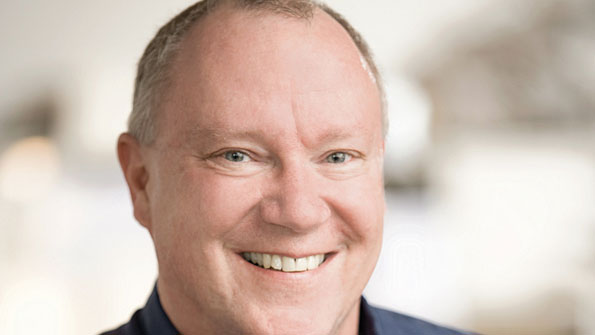NG-911 would be nice, but text-to-911 capability is a necessity
The best motivational speech I ever heard was delivered by the late Bo Schembechler, at a sporting goods industry event roughly two decades ago. I’ve never been much of a football fan, but after hearing the exhortations of Schembechler—the University of Michigan’s longtime coach—I wanted to put on the pads and start colliding with people. He really must have been something in the locker room.
What got me thinking about Schembechler after all these years were the remarks made by David Turetsky—chief of the FCC’s Public Safety and Homeland Security Bureau—this week at the National Emergency Number Association (NENA) conference in Charlotte, N.C. Turetsky channeled Schembechler just a bit as he exhorted the audience to do whatever it takes to make text-to-911 a reality.
Of all the wondrous capabilities that broadband technology will make possible in the public-safety sector, it may well turn out that text-to-911 will have the most impact. As Turetsky pointed out, text-to-911 already has saved lives. It will be a game-changer for the deaf and hard-of-hearing communities, but also for those who find themselves in situations where making a 911 voice call is out of the question, such as in active-shooter and domestic-violence situations. Because texts require very little bandwidth, they often go through when voice calls don’t when the wireless networks are overwhelmed—a common occurrence in the immediate aftermath of a major event.
“For all these reasons, it is vital that even as we consider the longer path to NG-911, we try to save lives and enhance public safety by addressing text messaging in the short term,” Turetsky said.
Turetsky urged the audience to talk to those who already have implemented the technology.
“If you are hesitating about adding text capability in your PSAP, I encourage you to talk to the PSAPs that have deployed text to 911,” he said. “They will tell you stories about lives saved and crimes [prevented] as a result. They can also tell you that, with good planning and consumer research, they were able to successfully integrate text into their operations, without a big strain on their resources.”
Meanwhile, the FCC is doing its part by creating a website—due to be launched this month—that will educate citizens on the capabilities of text-to-911 service.
As powerful as Turetsky’s exhortations were, the words of the Academy Award-winning actress Marlee Matlin spoke even louder. Matlin preceded Turetsky to the podium, as she gave that morning’s keynote address. Working with a translator, she shared a little of what it was like to be hard of hearing. She won her Oscar for her role in the movie “Children of a Lesser God,” in which she played a custodian at a school for the deaf. Matlin said that winning the Oscar was a bittersweet experience, because the critic Rex Reed questioned whether she deserved the award.
“Because I was a deaf person in a deaf role, he wrote that I wasn’t really acting,” said Matlin, who has been deaf since the age of 18 months. “I never felt more handicapped.”
Her life changed at that moment, as Matlin decided to become an advocate for the deaf and hard-of-hearing communities. She started by successfully lobbying for closed captioning to be made available on VHS tapes, which occurred in 1989. The very first was the “Wizard of Oz,” and there was a very specific reason why that particular film was targeted—as a child, Matlin played the role of Dorothy in a production performed by the International Center on Deafness and the Arts in suburban Chicago. This was during a time when only Matlin and her parents believed that a deaf person could follow the dream of becoming an actor, and this experience provided her with the inspiration to do so.
A year later, she joined the effort—spawned by the passage of the Americans with Disabilities Act—to lobby Capitol Hill to require all televisions 13 inches or larger to provide closed captioning. Today, all TVs provide this valuable capability. From there, Matlin set her sights on the Internet. It seems that television programming that originally was broadcast with the captioning was being streamed over the Internet without it. Not anymore, according to Matlin, who lobbied hard for the federal law that now requires any program originally broadcast with captions to include them when streamed.
“Now I’m setting my sights on text to 911,” she said.
Matlin has an affinity for public safety, as her husband is a Los Angeles police officer. But that’s not what’s driving her interest in text-to-911 capability; instead, it was another life-changing experience. While traveling one of L.A.’s freeways, she witnessed a horrific accident, one so bad that it was very likely in her mind that fatalities had occurred. She obviously couldn’t call 911, but she couldn’t text either, because the capability wasn’t available.
“There I was, once again, handicapped,” Matlin said. “But this time, it wasn’t a film critic or the attitudes that blocked my way; it wasn’t even a TV that had no technology to broadcast captions. This time, it was my cell phone. Instead of being able to instantly text to 911, I had to trust and leave it to other bystanders. And I shudder to think, what if it had been me in the accident—how could I have called?”
The irony is that the ability to text has leveled the playing field for the deaf and hard of hearing, according to Matlin. She said that she could have used a TTY device to make a 911 call, but added that the deaf and hard-of-hearing community mostly has abandoned TTY—which she described as “almost obsolete,” in favor of cellular and broadband technology.
According to Matlin, there are about 36 million deaf or hard-of-hearing Americans. She acknowledged that text-to-911 service is starting to pop up here and there, but there’s a lot more that needs to be done.
“As leaders of the nation’s public-safety agencies, I would like to encourage you to start upgrading your systems to be able to communicate with emergency messages—and we need to start today,” she said.
Matlin added that only then will millions of people such as her be able to communicate messages that will assist in emergency situations and help save lives.
“Technology is there that can allow all of us to stand equally, without barriers and without fear,” she said. “Let’s make sure we put them into place today.”
As it turns out, Marlee Matlin has a little Bo Schembechler in her, too.















